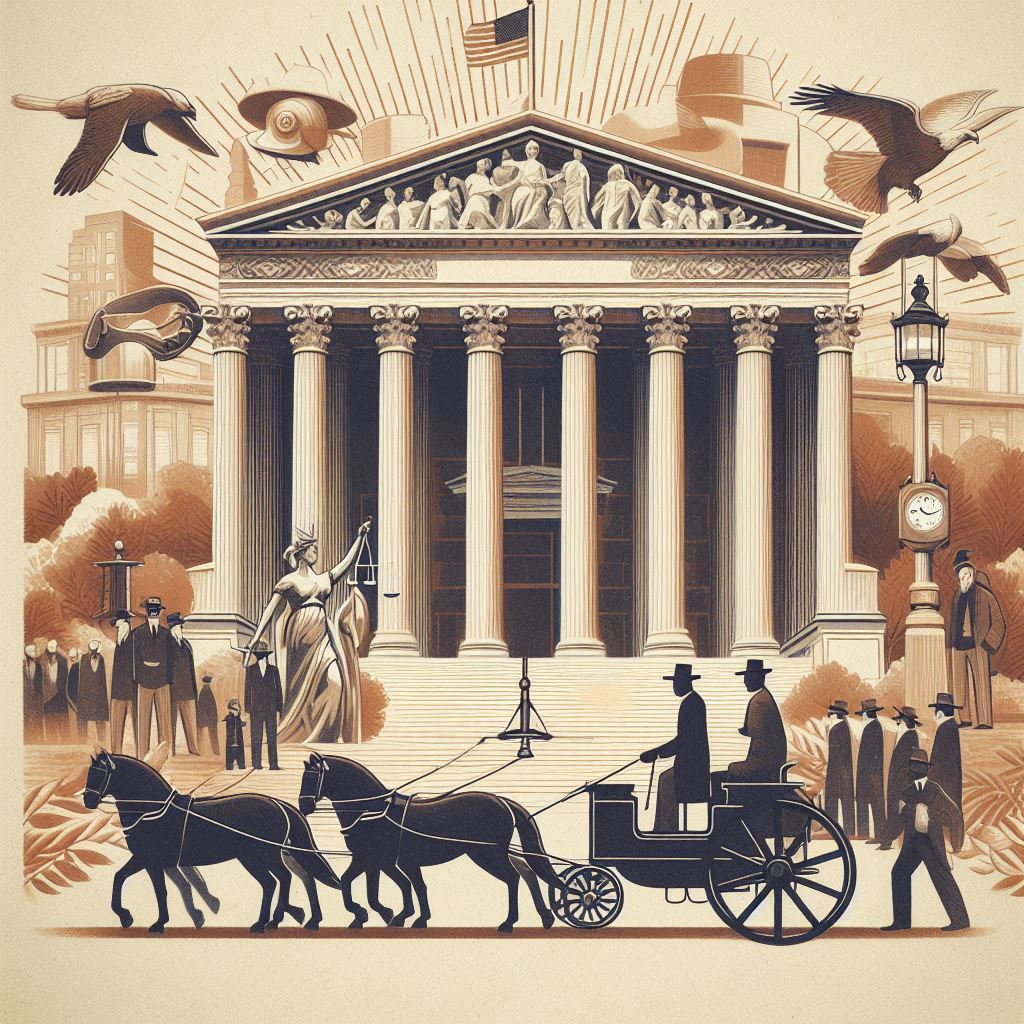Overview of the Case:
Standard Oil Co. of New Jersey v. United States, 221 U.S. 1 (1911), was a landmark Supreme Court decision where the Court ruled that John D. Rockefeller’s Standard Oil had illegally monopolized the American petroleum industry and ordered the company to be broken up. The Court also held that U.S. antitrust law banned only “unreasonable” restraints on trade, a principle known as the “rule of reason.”
History:
In the 1870s, the Standard Oil Company of Ohio, under John D. Rockefeller, began to establish a monopoly in the U.S. oil refining industry. Initially controlling about four percent of the market, Standard Oil soon acquired almost every refinery in Cleveland and expanded to other cities. By 1879, it controlled over 90 percent of the market. In the 1880s, the company integrated backward into oil exploration and crude oil distribution and forward into retail distribution, using its size to undercut competitors through anti-competitive practices like underpricing and threatening suppliers and distributors who worked with its competitors.
In November 1906, the Justice Department sued Standard Oil of New Jersey for violating the Sherman Act. The case, brought under the Expediting Act in the U.S. circuit court for the Eastern District of Missouri, concluded after a 15-month trial. The court issued a dissolution decree in November 1909 and its opinion in December 1909. The main question before the Supreme Court was whether Congress could prevent one company from acquiring numerous others legally but limiting competition due to its size and power.
Judgment:
On the same day as the American Tobacco case, the Court ruled these facts fell within Congress’s power to regulate under the Commerce Clause. The Court recognized that “restraint of trade” could apply to many normal contracts that didn’t harm the public. After reviewing English authorities, the Court concluded “restraint of trade” referred to contracts causing “monopoly or its consequences,” like higher prices, reduced output, and reduced quality. Only contracts that unduly restrained trade, causing one of these consequences, violated the Sherman Act. A broader interpretation would ban usual contracts and infringe on contract liberty. The Court endorsed the “rule of reason,” but found Standard Oil’s behavior exceeded its limits.
Concurrence:
Justice John Marshall Harlan concurred with the result but dissented on adopting the “rule of reason,” as it diverged from precedent. He argued the Sherman Act banned any contract directly restraining trade and expressed concern over the modifications to the decree, fearing they might be harmful. He emphasized the historical context and public unrest that led to the Sherman Act, stressing Congress’s authority to regulate commerce to protect against the aggregation of capital and its potential dangers.
Guided by these considerations, and to ensure that the public was not dominated by vast monopolies advancing their own interests over general welfare, Congress passed the Anti-Trust Act of 1890. Justice Harlan, citing United States v. Trans-Missouri Freight Association (166 U.S. 290, 1897), noted that the point was clearly met by the court that the act condemned only contracts, combinations, trusts, and conspiracies that unreasonably restrained interstate commerce. The court held that Congress declared unequivocally that “every contract, combination in the form of trust or otherwise, or conspiracy, in restraint of commerce among the several states” shall be illegal. There was to be no distinction between undue or reasonable restraints of commerce. Congress addressed the situation by absolutely prohibiting “every contract, combination in the form of trusts or otherwise, in restraint of trade or commerce.” The court stated that adding exceptions through judicial legislation was not permitted.
Significance:
The Standard Oil case led to the breakup of Standard Oil into 43 separate companies. Many have since recombined; the largest current descendants are ExxonMobil (Standard Oil of New Jersey and Standard Oil of New York) and Chevron (Standard Oil of California). Some Standard Oil descendants merged with other companies, particularly BP, which acquired Standard Oil of Ohio and Amoco. Scholars are divided, with some agreeing with Justice Harlan’s interpretation of prior case law, while others align with William Howard Taft, who argued that despite the different wording, the “rule of reason” in Standard Oil was consistent with previous case law

